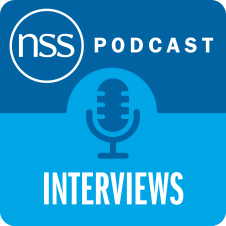The origins of secularism & the NSS
In the spring of 2020 during the coronavirus pandemic, the UK enacted social distancing policies which meant most NSS staff, members and supporters had to stay at home.
During this period, NSS council member and historian Bob Forder produced a series of lectures to support, educate and entertain all those interested in secularism and the history of the NSS. By telling the stories of Thomas Paine, Annie Besant, Charles Bradlaugh and the other important figures who contributed to the development of secular thought in the UK, Bob gives a fascinating and personal view of the origins of secularism and the National Secular Society.
Special thanks to David Wildman for his video editing skills.
Bob Forder discussed the series on Episode 24 of the NSS podcast.












